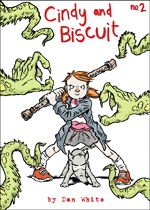Mad Thoughts Season 7.2 – Time and Life: We don’t want life to look difficult now, do we?
April 30th, 2015

In Shoot, Mad Men’s ninth episode, Jim Hobart tried to coerce Don into leaving SCDP by reviving and then threatening to take away his wife’s modelling career. By that time, Betty, a mother of two, hadn’t done any modelling for over half a decade, but when Jim dangled the possibility of a test shoot in front of her, and for Coca Cola no less, she jumped at the opportunity to carve out some space in what was becoming an increasingly claustrophobic marriage. Don let everything slide right up until the point Jim mailed him the proofs, with the unspoken message: Join us or we’ll wipe that smile from your wife’s face. Two minutes later he was in Roger’s office renegotiating his salary, and Betty was back to being a housewife.
But why? Despite Don’s admonishment to Jim – “I can’t exactly say that was a big league move” – it’s not his would be employer’s lack of character that decides the day, but the physical evidence that Betty’s career is a nascent reality. As long as it’s just a conversation around a dinner table Don can ignore the modelling, but when he’s holding the proof in his own hands, his wife beaming up at him out of the frame, well.. that’s another story altogether. It’s the irony that does it in the end, the way the photos, which depict a faux family picnic, perfect parents, perfect kids, reveal the lie which powers Don’s actual marriage. Because the only real thing about this scene is Betty’s smile, a smile which speaks of how wonderful it is to be doing something for herself, away from the life the images supposedly celebrate – and Don can’t stand it. This subtext is laid bare in seasons five and six, when Don reacts badly to Megan’s return to acting, but, watching it again, Shoot gives us all the subtle clues we need to know what he’s really thinking. Anyway, whether it’s Betty being used as a bargaining chip or selling her smile to the highest bidder, what irks Don the most is to see her transformed into a commodity, and, even worse, that she welcomes this degradation. It’s easy to parse this as simple sexism, and on one level it is, but there’s something deeper going on too.
Don’s career, his whole life, has been defined by his irrepressibility. Even before Mad Men begins he’s reinvented himself, and after that it’s endless – he ruthlessly cuts off all family ties, he won’t sign a contract, he’d rather start a new company than work for McCann, he won’t settle for one woman, he forces a company merger when he grows bored, even the thought processes behind his ad campaigns resist market research…. There’s no point listing it all. The point is that when this man says his life “only moves in one direction: forward”, he means it. Don won’t be caged. Until – finally – he is.
Which brings us to the present day, McCann and Coca Cola. Sadly there is an irony at the heart of Don’s life too, and it’s that the very genius which for so many years fooled him, and us, into thinking he could game capitalism in the end makes him its most perfect servant. He thought he was always out ahead, but every step brought him one step closer to the corporate hell he left in the dust at the end of season three. For a success machine like Don Draper being absorbed into McCann was always inevitable, and the escape hatch he conjured the first time this threatened to happen, SCDP, was little more than a final proving ground. Frankly as valuable as he is, he’s the super-brand’s advertising industry equivalent. His costuming in Time and Life’s final scene, black and red, as good as confirms this. Don, the game’s best player, bought and sold at last.
He’s won, but in the end what does advertising heaven look like?

A perfect, empty life.
Midway through her photoshoot, Peggy asks McCann’s art director how it is that the coke bottles she’s holding are already open. His answer, the title of this piece, resonates with Jim Hobart’s command for SC&P’s management to stop struggling and surrender –
“We don’t want life to look difficult now, do we?”
That’s just it though, the story of Mad Men, of SC&P, of the 60s themselves, is defined by difficulty, by struggle. Life is defined by struggle. What Jim’s offering is the other thing. Will Don Draper take it?
I’ll leave you with his final words to Roger after recommitting to Sterling Cooper at the end of Shoot.
“If I leave this place one day, it will not be for more advertising.”
“What else is there?”
“I don’t know, life being lived? I’d like to stop talking about it and get back to it.”
“I’ve worked with a lot of men like you and if you had to choose a place to die it would be in the middle of a pitch.”
“I’ve done that. I want to do something else.”
In Time and Life Don really did die in the middle of a pitch, a pitch for the future of his company. He died and was replaced by a product.
I give him one episode. Maybe two.
*Ronnie Gittridge, Shoot



